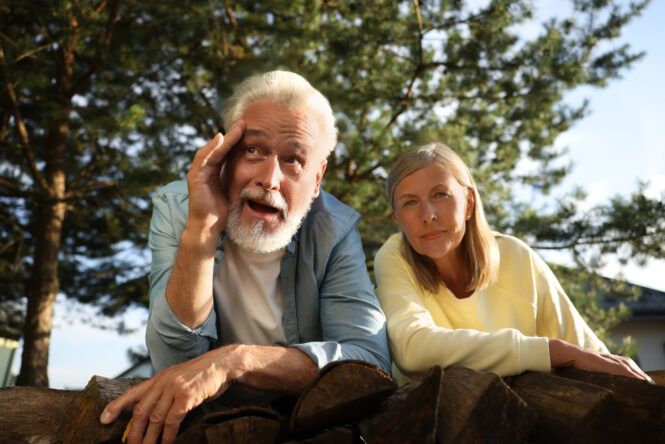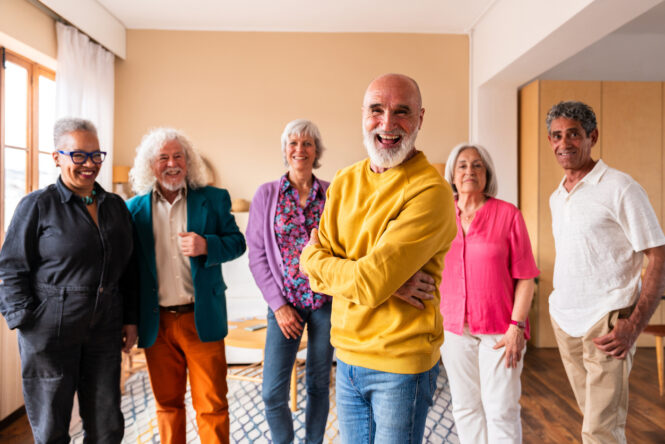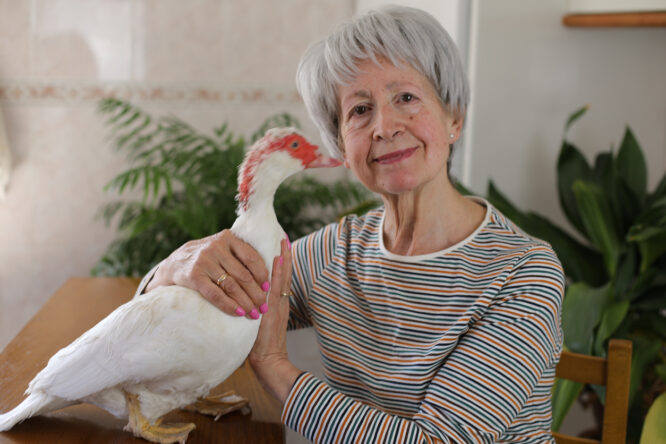As we get older, life can start to feel oddly repetitive.

That’s not just in terms of routines or responsibilities, but in the strange sense that we’ve been here before, even when we technically haven’t. If you’ve caught yourself thinking, “Didn’t this already happen?”—you’re not imagining things. Here’s why that eerie familiarity shows up more and more with age, and what it might be quietly teaching you.
1. Your brain starts recognising patterns more quickly.

The older you get, the more mental shortcuts your brain forms. You’ve seen enough social dynamics, emotional responses, or even calendar cycles to start spotting similarities before they fully unfold. What once felt new now feels predictable—not because life’s boring, but because your brain is constantly matching new input with old experience. That low hum of familiarity is a feature, not a glitch.
2. Your days become more structured, and more similar.

You might wake up at the same time, drink from the same mug, take the same commute, and end your day in the same way. As time goes on, the repetition creates a rhythm that feels oddly cyclical. It’s comforting, but also disorienting. When every Monday looks like last Monday, it’s easy to feel like time is folding in on itself. Deja vu becomes less about mystery and more about muscle memory.
3. You’ve seen enough emotional situations to recognise the beats.

You can predict how certain arguments will go. You can feel when someone’s pulling away. You sense what regret sounds like, what burnout feels like, what slow fading friendships look like. You’re not jaded; you’re just experienced. Emotional deja vu is often your intuition recognising a pattern you didn’t know you learned. It’s your inner world whispering, “We’ve felt this before.”
4. Nostalgia gets triggered by the smallest things

You experience a smell, a song, or a street you haven’t walked down in years, and suddenly, you’re 10 years back in your mind. These memory flashes feel like deja vu because they collapse time. As you age, you carry more of those internal timestamps. They sneak into your present moment like shadows, reminding you that the past never really left—it just softened at the edges.
5. Your sense of novelty naturally fades.

The first time you experience something, it hits you fully. The tenth time, it starts to feel familiar. The hundredth, and it blends into the background. It’s not about losing interest; it’s about emotional saturation. You’re no longer shocked by certain types of conversations, choices, or outcomes. Life starts to feel like a remix of things you’ve already felt, even if the setting has changed.
6. Time starts to move differently.

As a kid, a summer felt like forever. Now, weeks vanish in a blink. The more years you live, the smaller each one feels in comparison, and that creates the sense that everything’s happening faster. When time compresses, moments blur together. That speeding-up sensation makes experiences feel less distinct, which can make them feel repeated, even if they’re not.
7. You reflect more, and that reflection can echo the present.

The more you think back, the more you notice overlaps. You realise that the problem you’re facing now is eerily similar to the one you had five years ago, just in a different outfit. That echo doesn’t mean you haven’t grown. It means life has layers. The more you reflect, the more you notice the circular nature of your own experiences.
8. Life’s themes start repeating in different forms.

Maybe you keep learning lessons around boundaries. Maybe you keep encountering the same type of challenge at work. Maybe your relationships follow a familiar script. These recurring patterns aren’t failures, they’re invitations. Each round brings a chance to respond differently, to make new choices, or to finally understand something you once missed.
9. You start to expect certain endings.

You can sense when a good moment is coming to a close. You notice when someone’s enthusiasm is starting to fade. You can tell when a plan isn’t going to last. That sense of recognition can feel like deja vu, but it’s actually maturity. You’ve stopped being surprised by how things evolve, and that subtle knowing creates emotional repetition.
10. You revisit places with different eyes.

You go back to a childhood town. You walk through an old school. You find yourself in a familiar setting with a completely different mindset. Suddenly, it feels like a ghost version of yourself is walking beside you. That layered feeling—past and present stacked on top of each other—is one of the most vivid forms of deja vu. It’s not just memory. It’s transformation made visible.
11. You know yourself better, and that changes how you move through the world.

You’ve learned what drains you, what lifts you, what you’ll never do again. With that self-awareness comes predictability. You respond to things in ways you’ve already practised. It’s not boring—it’s self-trust. Still, it can make life feel like it’s looping instead of stretching, especially when you keep choosing peace over chaos in ways that feel familiar.
12. You’ve let go of the need to be surprised.

In your twenties, you might have chased shock and thrill. Now, comfort feels like magic. You’re okay with familiar restaurants, quiet nights, and people you don’t need to impress. That craving for predictability naturally invites more repetitive experiences. And when surprise is no longer the goal, deja vu starts to feel like a gentle companion, not a glitch.
13. Your memory becomes more layered than linear.

As you age, memory doesn’t unfold neatly—it overlaps. Moments blur, timelines tangle, and emotional flashbacks pop up out of nowhere. You might feel like you’re reliving something because your mind is constantly cross-referencing. A smell, a season, a certain kind of sky—it all taps into memories that never fully left.
14. You start noticing how much you’ve changed.

Oddly enough, one of the clearest signs of growth is realising how similar things feel on the surface—while you are reacting to them in totally different ways. Deja vu isn’t always sameness. Sometimes it’s your evolution showing up in familiar scenes. The world feels like it’s repeating—but the version of you in the middle of it? Completely new.




